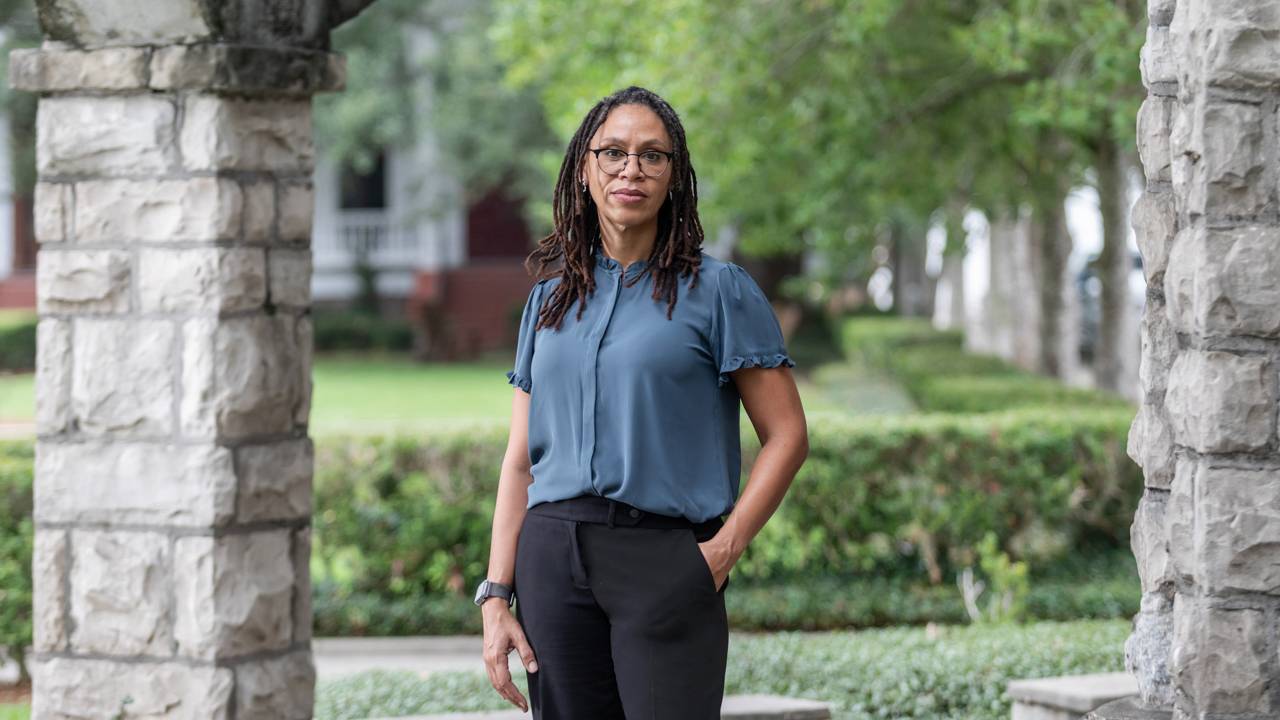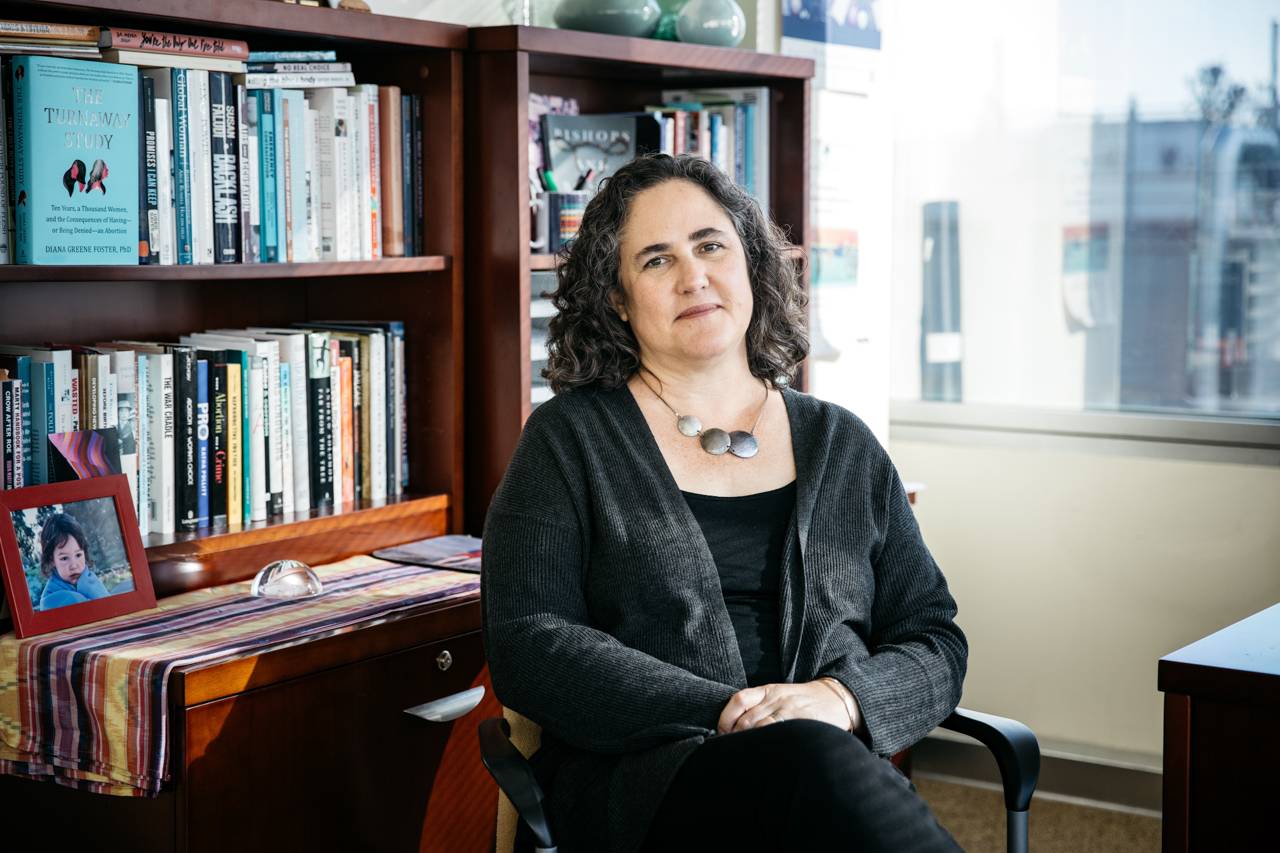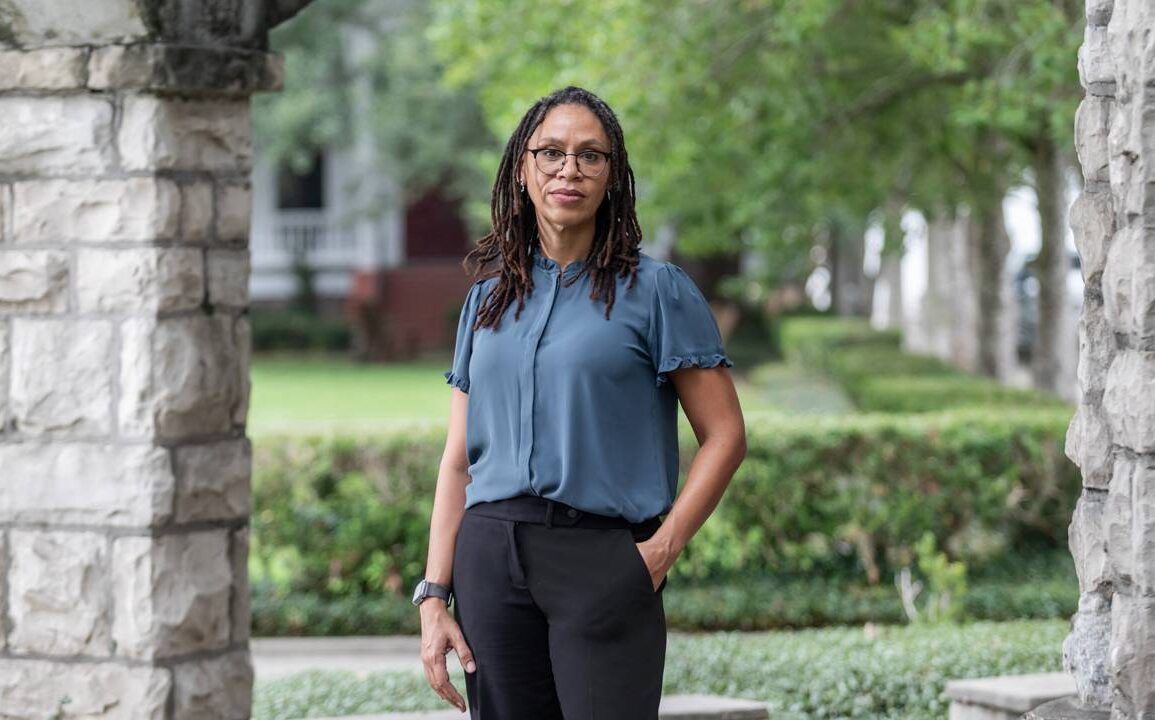Graduate alumni Andrea Armstrong *01 and Diana Greene Foster *98, both of the School of Public and International Affairs (SPIA), and Lester Mackey, Class of 2007, who earned his B.S.E. in computer science, have been awarded 2023 MacArthur Fellowships.
Each points back to their Princeton experience as an influence for their work in law, public health and data science, and their accomplishments reflect the University’s pervasive commitment to service.
The three Princeton alums are among 20 scientists, artists and scholars across the country who each will receive an $800,000 stipend from the John D. and Catherine T. MacArthur Foundation. The fellowships, known informally as “MacArthur genius grants,” recognize people who have demonstrated “exceptional originality in and dedication to their creative pursuits.” Other recent Princeton recipients include June Huh, professor of mathematics, and Keeanga-Yamahtta Taylor, the Hughes-Rogers Professor of African American Studies.
Nominated anonymously by leaders in their respective fields and considered by an anonymous selection committee, recipients learn of their selection only when they receive a call from the MacArthur Foundation just before the public announcement.
Andrea Armstrong

Andrea Armstrong, who earned her MPA from Princeton’s School of Public and International Affairs in 2001, is the founder of the Incarceration Transparency project in Louisiana.
Armstrong is the Dr. Norman C. Francis Distinguished Professor of Law at Loyola University New Orleans’ College of Law. Her research, legal writings and advocacy are rooted in incarcerated people’s experiences in Louisiana, but the influence of her work is much broader.
She founded the Incarceration Transparency project, an online database that contains information about the deaths in every prison, jail and youth detention facility in Louisiana since 2015. It is the first publicly available statewide database on deaths in custody in the United States. Armstrong and her students filed hundreds of public records requests with local and state agencies to build it.
“One of the most rewarding parts of my current research project is that law students are learning essential skills while also performing a public service,” she said. “We know so much more about who is dying behind bars in Louisiana and why because of their efforts and commitment. Prisons, jails and detention centers are public institutions and what happens within them is society’s responsibility.”
She entered SPIA’s MPA program after serving in the U.S. Peace Corps. “My most recent project, analyzing deaths behind bars in Louisiana, is only possible because of the quantitative and statistical training I learned at Princeton,” she said. “While I am certainly not an advanced statistical analyst, Princeton taught me to be comfortable with numbers. We identify patterns and trends, but we also hope that by publishing the data, we enable more refined statistical analysis on how and why people are dying behind bars in Louisiana.”
When she received the call about the fellowship, she had just parked her car at Cherry Espresso — her favorite coffee shop in New Orleans — and was looking forward to a few hours of uninterrupted writing when the phone rang with a Chicago area code. “I have a few fantastic colleagues in Chicago and figured they must be calling me from a new number,” she said. “I was in total and complete shock. I still am to be honest.”
Armstrong earned her bachelor’s in political science from New York University in 1996, her MPA from Princeton’s School of Public and International Affairs in 2001 and her J.D. from Yale University in 2007.
Diana Greene Foster

Diana Greene Foster, who earned her Ph.D. from Princeton’s School of Public and International Affairs in 1998, is the author of the widely cited Turnaway Study examining the effects of unwanted pregnancy on women’s lives.
Foster is a professor of obstetrics, gynecology and reproductive sciences at the University of California-San Francisco. As a demographer and reproductive health researcher, she investigates how reproductive healthcare policies and access impact individuals’ physical, mental and socioeconomic well-being. She is the author of the widely cited Turnaway Study examining the effects of unwanted pregnancy on women’s lives.
“I study the causes and consequences of unintended pregnancy,” she said. “I hope that this fellowship brings attention to rigorous science which demonstrates that access to abortion affects the health of pregnant people, the financial security of families, and the health and development of children.”
Foster said that the idea for one of her studies that has had the greatest policy impact had its genesis at Princeton, where her graduate student health plan offered a one-year supply of birth control pills. In her first job after Princeton, her health insurance covered just one or three packs at a time. She conducted research in California that showed that when women are given a one-year supply of birth control, they are less likely to have gaps in coverage, less likely to have an unintended pregnancy, and less likely to have an abortion. This research has led to laws in 20 states and the District of Columbia that allow for dispensing a one-year supply.
When Foster received the call about the fellowship, her son was visiting from college and her house was full of people. “I was allowed to tell just one person (I picked my husband) so it was very weird to be in the house and try to keep a big secret from everyone staying there,” she said.
Foster earned her B.S. in agricultural economics at the University of California-Berkeley and her Ph.D. from Princeton’s School of Public and International Affairs in 1998.
Lester Mackey

Lester Mackey, who received his B.S.E. from Princeton in 2007, is pioneering statistical and machine learning techniques to solve data science problems with real-world impact, including a method for more accurately predicting disease progression rates in patients with ALS.
Mackey is a principal researcher with Microsoft Research New England and an adjunct professor at Stanford University. As a computer scientist and statistician, he is pioneering statistical and machine learning techniques to solve data science problems with real-world relevance.
His work has ranged from designing a method for more accurately predicting disease progression rates in patients with ALS, or Lou Gehrig’s disease, to improving weather forecasts that are critical to decision making on matters such as resource allocation, flood mitigation and wildfire management.
“I love everything about my work,” he said. “I love learning from doctors and water managers and scientists about the problems plaguing our world and the possible paths to a solution. I love interacting with data. I love designing effective algorithms, writing efficient code and proving useful theorems. And I especially love the fact that I get to do all of these things nearly every day.”
Mackey’s research in machine learning and statistics focuses on techniques to improve efficiency and predictive performance in computational statistical analysis of very large data sets. He then applies his theoretical insights to develop scalable learning algorithms to apply to societal problems.
He thanks his Princeton classmates David Weiss and David Lin for his introduction to machine learning. In their senior year, the three friends entered Netflix’s competition to improve its recommender system, with a $1 million prize. “We learned everything we could about machine learning,” he said. “In the end, we lost by 20 minutes (we tied the winning team, and the tie-breaker was time of submission), but the experience sparked our imaginations and opened the door to the world of machine learning.”
When Mackey received the call about the fellowship, he was in a meeting and ignored it, assuming it was spam. When a second call arrived from the same unknown number, he picked up in case it happened to be one of his children’s teachers. “When I heard the name ‘MacArthur Foundation,’ my reaction was some strange mix of shock and skepticism,” he said. “In all honesty, I was waiting for someone to ask for my social security number to steal my identity. When that didn’t happen, I bolted down the stairs to tell my wife.”
Mackey received his B.S.E. in computer science and a certificate in applied and computational mathematics from Princeton in 2007, and his Ph.D. from the University of California-Berkeley in 2012.
This post was originally published on this site be sure to check out more of their content.







